Testing Information

Tests are listed in alphabetical order.
Taken each May by students all over the world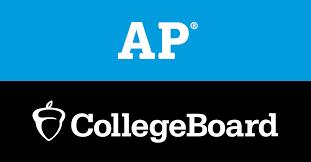 , the Advanced Placement Exam (AP Exam) is the final step you take after a year of hard work in an AP class. These standardized exams are designed to measure how well you’ve mastered the content and skills of the course - a successful score could even earn you credit and advanced placement in college.
, the Advanced Placement Exam (AP Exam) is the final step you take after a year of hard work in an AP class. These standardized exams are designed to measure how well you’ve mastered the content and skills of the course - a successful score could even earn you credit and advanced placement in college.
The Armed Services Vocational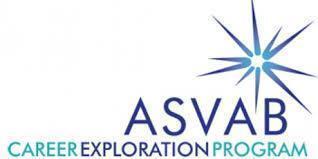 Aptitude Battery is the most widely used multiple-aptitude test battery in the world. As an aptitude test, the ASVAB measures your strengths, weaknesses, and potential for future success. The ASVAB also provides you with career information for various civilian and military occupations and is an indicator for success in future endeavors whether you choose to go to college, vocational school, or a military career.
Aptitude Battery is the most widely used multiple-aptitude test battery in the world. As an aptitude test, the ASVAB measures your strengths, weaknesses, and potential for future success. The ASVAB also provides you with career information for various civilian and military occupations and is an indicator for success in future endeavors whether you choose to go to college, vocational school, or a military career.
The Iowa Algebra Aptitude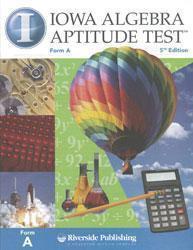 Test or IAAT is a group-administered algebra placement test. The IAAT is widely used to assess student readiness for Algebra I. The IAAT questions include algebraic concepts as well as geometry and statistics.
Test or IAAT is a group-administered algebra placement test. The IAAT is widely used to assess student readiness for Algebra I. The IAAT questions include algebraic concepts as well as geometry and statistics.
This test is administered to most 7th-grade students during the late spring semester.
The goal of the National Latin Exam is to provide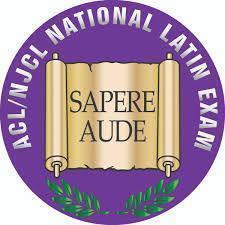 an opportunity for students to demonstrate their knowledge of the Latin and Roman world on a test consisting of 40 multiple-choice questions. The exam focuses on the student’s ability to read and comprehend Latin as outlined in the American Classical League’s Standards for Classical Languages.
an opportunity for students to demonstrate their knowledge of the Latin and Roman world on a test consisting of 40 multiple-choice questions. The exam focuses on the student’s ability to read and comprehend Latin as outlined in the American Classical League’s Standards for Classical Languages.
The National Latin Exam is an opportunity for students to receive reinforcement and recognition for their accomplishments in the classroom. Depending upon their score, students may earn certificates, medals, and may even qualify for scholarships.
All students in Latin I - IV will test the last week in February.
The Preliminary SAT/National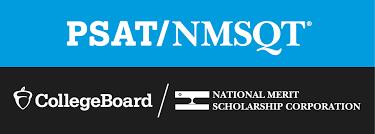 Merit Scholarship Qualifying Test (PSAT/NMSQT) is a standardized test administered by the College Board and co-sponsored by the National Merit Scholarship Corporation (NMSC) in the United States. The scores from the PSAT/NMSQT are used to determine eligibility and qualification for the National Merit Scholarship Program.
Merit Scholarship Qualifying Test (PSAT/NMSQT) is a standardized test administered by the College Board and co-sponsored by the National Merit Scholarship Corporation (NMSC) in the United States. The scores from the PSAT/NMSQT are used to determine eligibility and qualification for the National Merit Scholarship Program.
All sophomores and juniors are scheduled to take this digital test in October for free.
Students can connect PSAT/NMSQT scores to Khan Academy to receive a personalized SAT study plan.
The PSAT 8/9 focuses on the skills 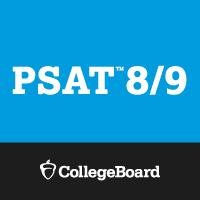 and knowledge at the heart of education and is relevant to students' future success. It measures:
and knowledge at the heart of education and is relevant to students' future success. It measures:
- What you learn in school
- What you need to succeed in college
All freshmen are scheduled to take this digital test in October for free.
HOMESCHOOL PAYMENT AND REGISTRATION
The STAAR assessments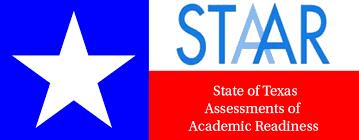 are designed to measure the extent to which a student has learned and is able to apply the knowledge and skills at each tested grade or course identified in the Texas Essential Knowledge and Skills (TEKS). The state assessment program is fully aligned to the TEKS, the statewide curriculum required to be taught. Beginning in grade 3 through high school graduation, students will be tested in the core subject areas of reading, mathematics, science, and social studies.
are designed to measure the extent to which a student has learned and is able to apply the knowledge and skills at each tested grade or course identified in the Texas Essential Knowledge and Skills (TEKS). The state assessment program is fully aligned to the TEKS, the statewide curriculum required to be taught. Beginning in grade 3 through high school graduation, students will be tested in the core subject areas of reading, mathematics, science, and social studies.
STAAR Assessments for Grades 3 - 8
| 3rd | 4th | 5th | 6th | 7th | 8th | |
| Reading | x | x | x | x | x | x |
| Math | x | x | x | x | x | x |
| Science | x | x | ||||
| Social Studies | x |
STAAR End of Course (EOC) Assessments for Grades 9 - 11
Students enrolled in specific high school courses are required by federal and state law to take corresponding STAAR EOC Assessments.
| 9th | 10th | 11th | |
| Algebra* | x | ||
| Biology | x | ||
| English I | x | ||
| English II | x | ||
| U.S. History | x |
*Students will take the test for the subjects the year they are enrolled in the course. This means that 8th grade students who are enrolled in Algebra in their 8th grade year will take the assessment then instead of in 9th grade.
STAAR Alternate 2
The Texas Education Agency (TEA) 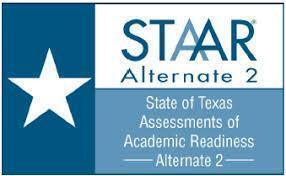 designed the STAAR Alternate 2 (STAAR ALT 2) to assess students in grades 3-8 and high school who have significant cognitive disabilities and are receiving Special Education services. Texas definition of a student with a significant cognitive disability is a student who:
designed the STAAR Alternate 2 (STAAR ALT 2) to assess students in grades 3-8 and high school who have significant cognitive disabilities and are receiving Special Education services. Texas definition of a student with a significant cognitive disability is a student who:
Texas definition of a student with a significant cognitive disability is a student who:
- exhibits significant intellectual and adaptive behavior deficits in their ability to plan, comprehend, and reason, and ALSO indicates adaptive behavior deficits that limit their ability to apply social and practical skills such as personal care, social problem-solving skills, dressing, eating, using money, and other functional skills across life domains;
- is NOT identified based on English learner designation or solely on the basis of previous low academic achievement or the need for accommodations; and
- requires extensive, direct, individualized instruction, as well as a need for substantial supports that are neither temporary nor specific to a particular content area.
TELPAS is an assessment program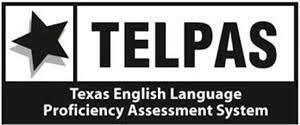 for students in Texas public schools who are learning the English language. The Texas Education Agency (TEA) developed TELPAS to meet state and federal requirements. Texas annually assesses the English language proficiency of students who have been identified as Emergent Bilinguals (EB) in four language domains - listening, speaking, reading, and writing. TELPAS evaluates the progress that each EL makes in becoming proficient in the use of academic English.
for students in Texas public schools who are learning the English language. The Texas Education Agency (TEA) developed TELPAS to meet state and federal requirements. Texas annually assesses the English language proficiency of students who have been identified as Emergent Bilinguals (EB) in four language domains - listening, speaking, reading, and writing. TELPAS evaluates the progress that each EL makes in becoming proficient in the use of academic English.
TELPAS Alternate
TEA has developed the TELPAS Alternate assessment to meet the federal requirements mandated under the Every Student Succeeds Act (ESSA), which requires states to administer an alternate English language proficiency (ELP) assessment for Emergent Bilinguals (EB) with the most significant cognitive disabilities who cannot participate in the general ELP assessment, even with allowable accommodations.
College Entrance Exams
This site provides information using PDF, visit this link to download the Adobe Acrobat Reader DC software.
